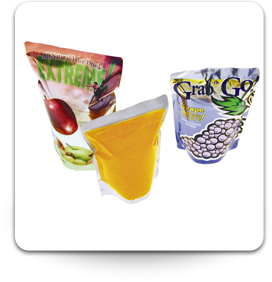Recovery of Flexible Packaging Study Gets Underway
Collaborative industry project is aimed at recovering more packaging that is currently destined for landfill.

Materials Recovery for the Future is reportedly the first-of-its-kind study that brings together brand owners, manufacturers, and packaging industry organizations that are committed to enhance recovery solutions for increasingly popular flexible film and packaging options.
An initiative of the Research Foundation for Health and Environmental Effects (RFHEE), a 501 (c) (3) tax-exempt organization established by the American Chemistry Council, this research effort represents a first step in what will be a series of projects aimed at creating a mainstream recovery solution for flexible packaging.
Resource Recycling Systems (RRS) consultancy developed the test methodology and will conduct the first phase of the research, which will include baseline testing of the existing sortation technologies commonly used in material recovery facilities, such as screens and optical scanners. A representative mix of the flexible packaging generated by consumers will be created and added at an appropriate concentration to single stream recyclables for testing. This mixed stream will be run through the sorters, and the amount of flexible packaging captured in the resulting bale will be measured to determine sorting effectiveness.
Results are slated to be published in the second quarter of 2016. Project sponsors include The Dow Chemical Company, PepsiCo, Procter & Gamble, Nestle Purina PetCare and Nestle USA, Sealed Air, and SC Johnson, as well as the Association for Postconsumer Plastic Recyclers (APR), the Flexible Packaging Association (FPA), and SPI: The Plastics Industry Trade Association.
Says Jeff Wooster, global sustainability director, Dow Packaging and Specialty Plastics, “Flexible packaging offers many benefits we take for granted. It typically uses less energy and materials than other packaging options, helps extend food shelf life and minimize spoilage, and reduces waste by preserving and protecting products until they are consumed. This new sortation research is critical in helping to close the recovery loop for flexible packaging and we are committed to this collaboration to drive solution for increased recovery rates.”
Related Content
-
Fungi Makes Meal of Polypropylene
University of Sydney researchers identify two strains of fungi that can biodegrade hard to recycle plastics like PP.
-
BASF Highlighting How They 'Make, Use and Recycle Future Solutions'
NPE2024: BASF is using its proprietary computer-aided engineering tool Ultrasim when designing for sustainability in a broad range of industries.
-
New Facility Refreshes Post-Consumer PP by Washing Out Additives, Contaminants
PureCycle prepares to scale up its novel solvent recycling approach as new facility nears completion.
















